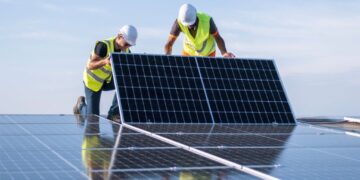Each year, close to 4 million people die prematurely from illness attributable to household air pollution from inefficient cooking practices using polluting stoves paired with solid fuels and kerosene according to the World Health Organization, WHO.
These solid fuels are often burned in open fires with inadequate ventilation, exposing families, in particular women and children, to toxic indoor smoke for hours daily over their lifetimes.
The toxic emissions are blamed for low birth weights, pneumonia in young children, and chronic obstructive pulmonary disease, emphysema, cardiovascular disease, lung cancer, cataracts and other health problems in adults.
Burning solid fuels in open fires and traditional stoves also releases emissions of some of the most important contributors to global climate change: carbon dioxide, methane and other ozone producing gases such as carbon monoxide.
The U.N. Intergovernmental Panel on Climate Change estimates that 15 percent of energy used by humanity every year comes from the burning of firewood in areas where alternatives are hard to come by. Some of the wood is baked into charcoal before being used. Gathering the firewood is thought to be responsible for a little more than half of global wood harvested.
Low-income households in developing countries are the most dependent on solid fuels for household energy needs, with developed countries and higher-income households in developing countries typically using electricity or processed fuels such as liquefied petroleum gas (LPG) and natural gas.
In developing countries, about 730 million tons of biomass are burned each year, amounting to more than 1 billion tons of carbon dioxide (CO2) emitted into the atmosphere.
In terms of climate, biomass comes in two major types: sources that are harvested renewably, such as agricultural residues, and in many areas fuel wood, which is harvested non-renewably thus potentially increasing deforestation or at least putting pressure on biomass resources. Estimates are that some 30 per cent of fuelwood is harvested without being replaced (non-renewably) worldwide.
In sub-Saharan Africa, wide dependence on woodfuel harvested from forests and woodlands could significantly deplete these natural resources. In addition woodfuel consumption using inefficient stoves has been said to be responsible for much of the region’s total household greenhouse gas emissions.
Wood, a form of biomass, remains the sole source of energy for hundreds of millions of Africans, who lack access to modern sources of power. Illegal logging also remains a lucrative business that has contributed to the rapid shrinking of Africa’s rainforests and woodlands.
More than 1.6 billion people rely on forests for their livelihoods at various levels in terms of gathering of forest resources such as firewood, non- timber forest products like fruits, nuts, broom, vegetables, leaves and medicinal plants and so on are either for consumption or for sale to cater for their domestic needs.
According to Coulibaly- Lingani et al.,3 about 75 per cent of women use forest globally because of their roles as carers and those who cook for the family.
With better fuels and more efficient cookstoves, emissions could be reduced.
Over the past decade, a variety of solid fuel based cookstove models that improve combustion efficiency and reduce emissions when compared with open fires and traditional stoves have entered the market.
Several additional emerging innovations in the cookstove sector are making clean cooking solutions more affordable and promoting sustained adoption.
However, letting forests grow is the single best way we currently have to remove carbon dioxide from the atmosphere. Standing forests keep growing, storing more carbon and helping to limit the growth of atmospheric carbon dioxide arising from sectors of the economy – like aviation and heavy industry – that are difficult to decarbonize.























